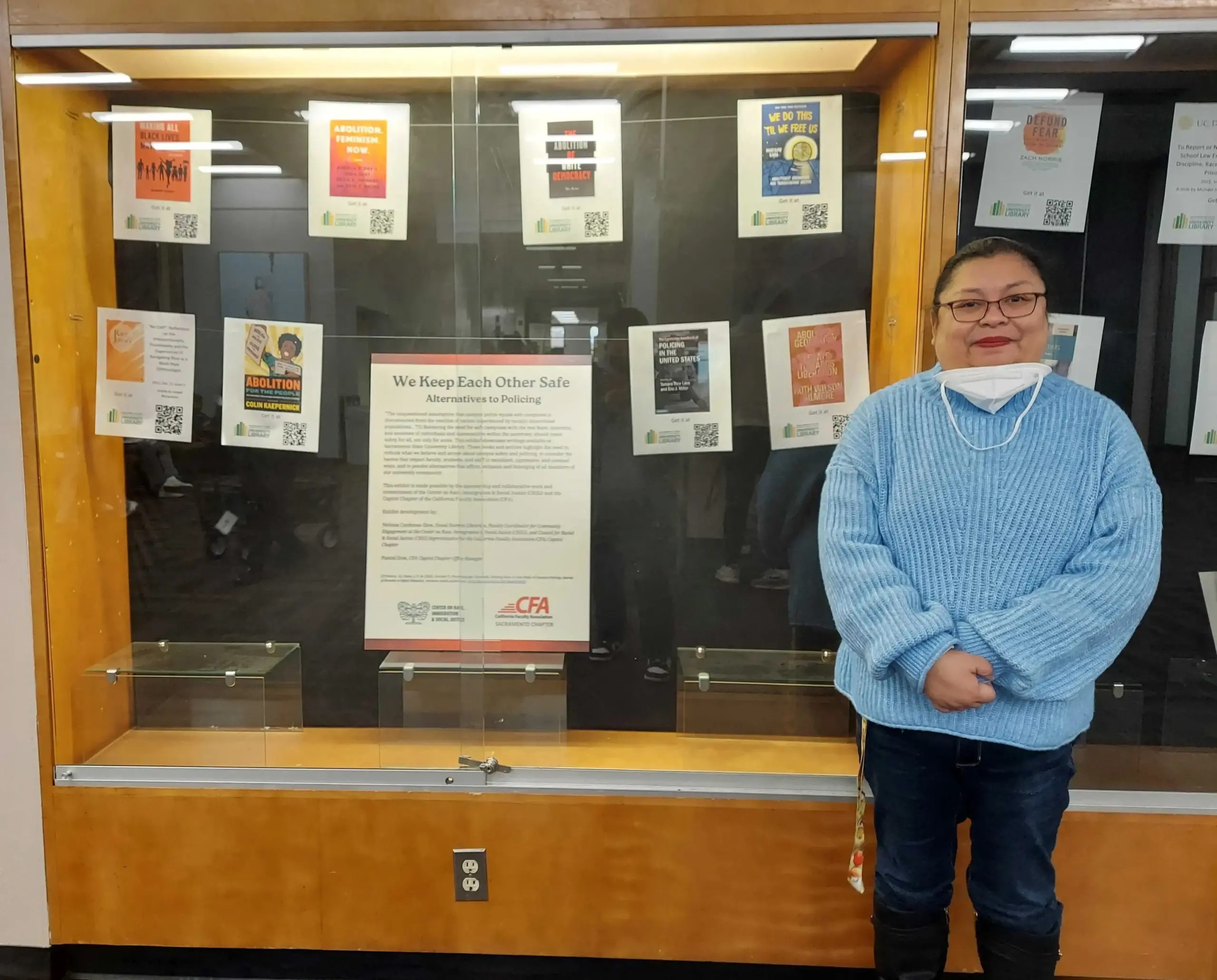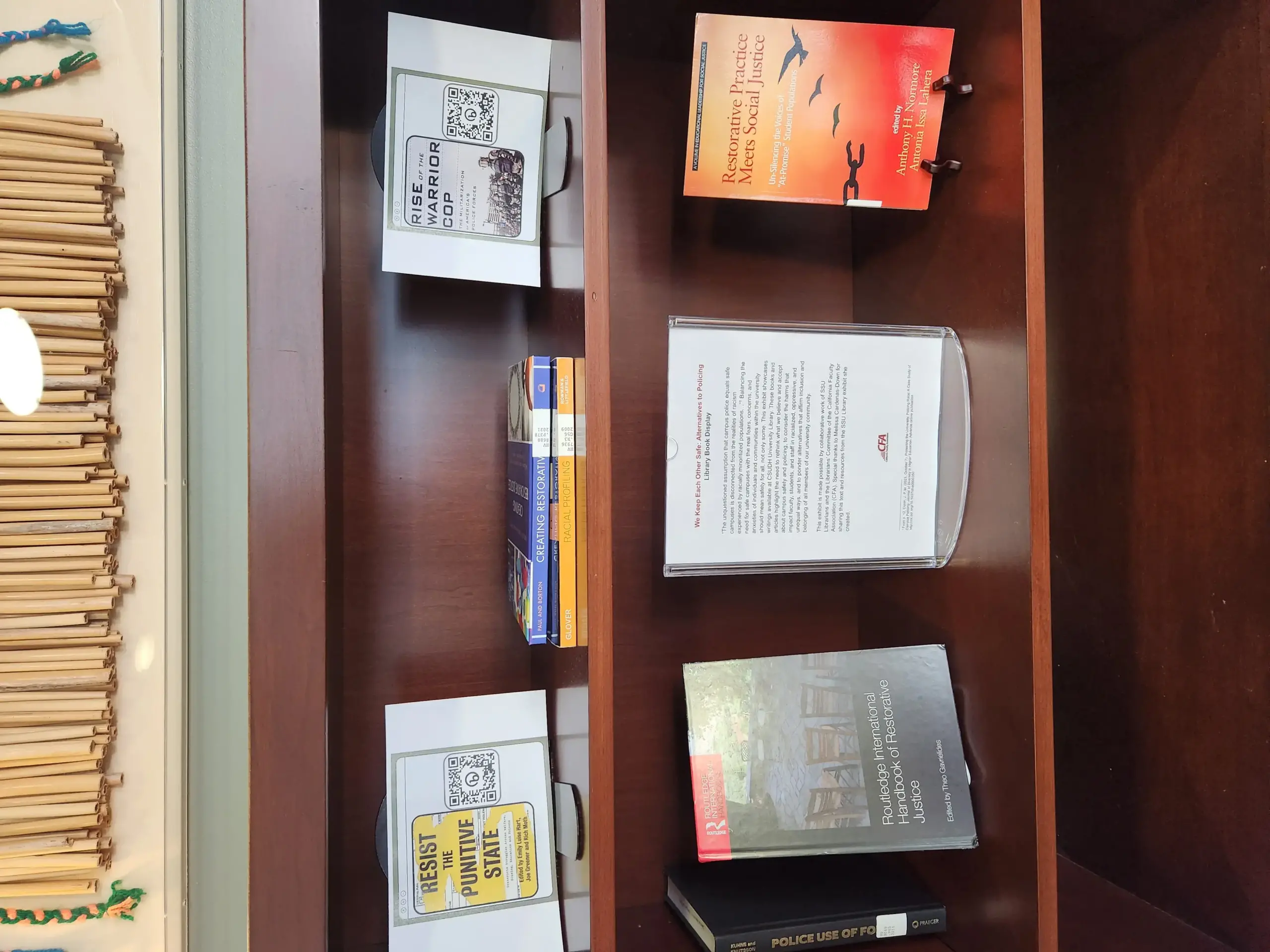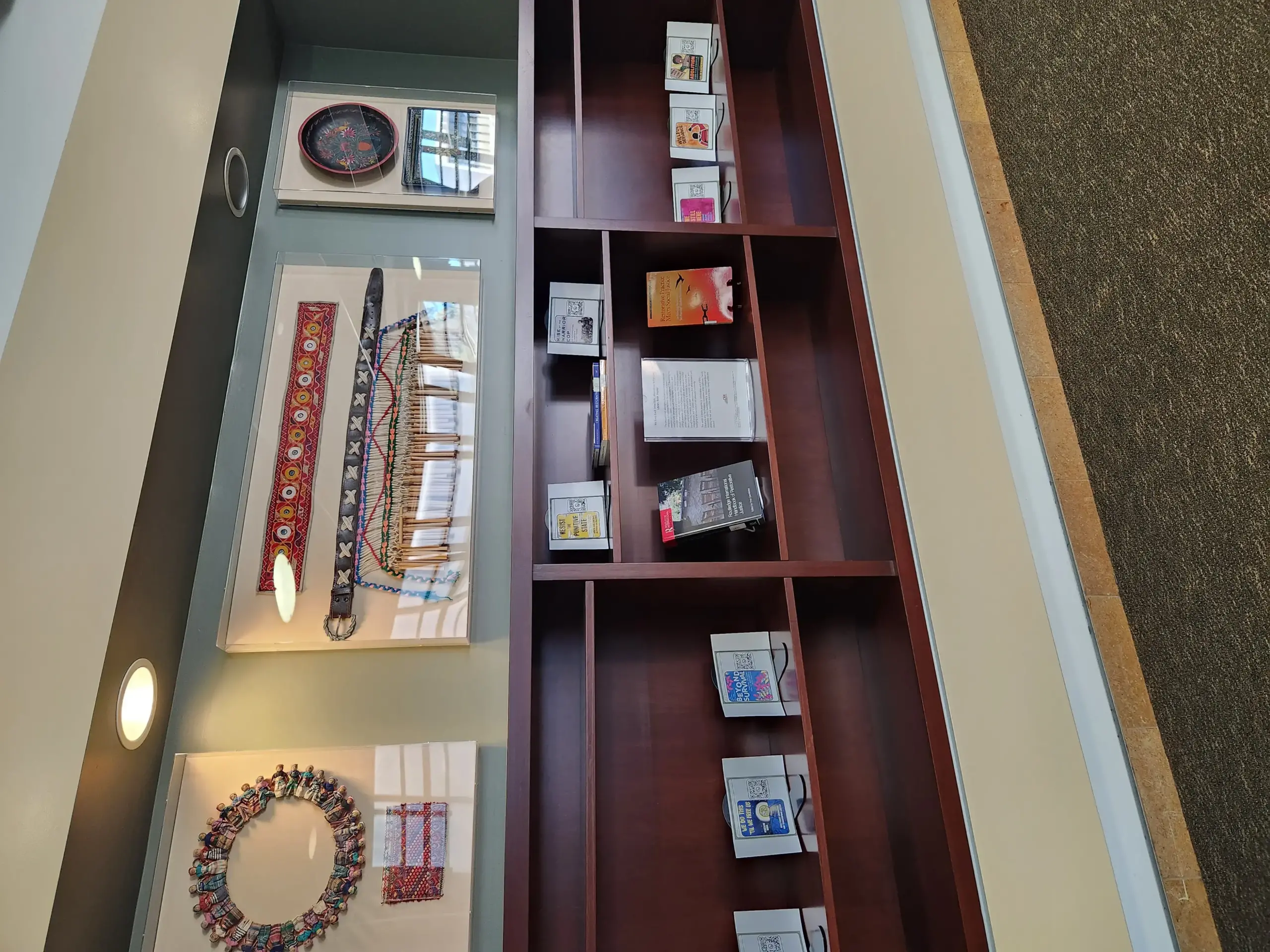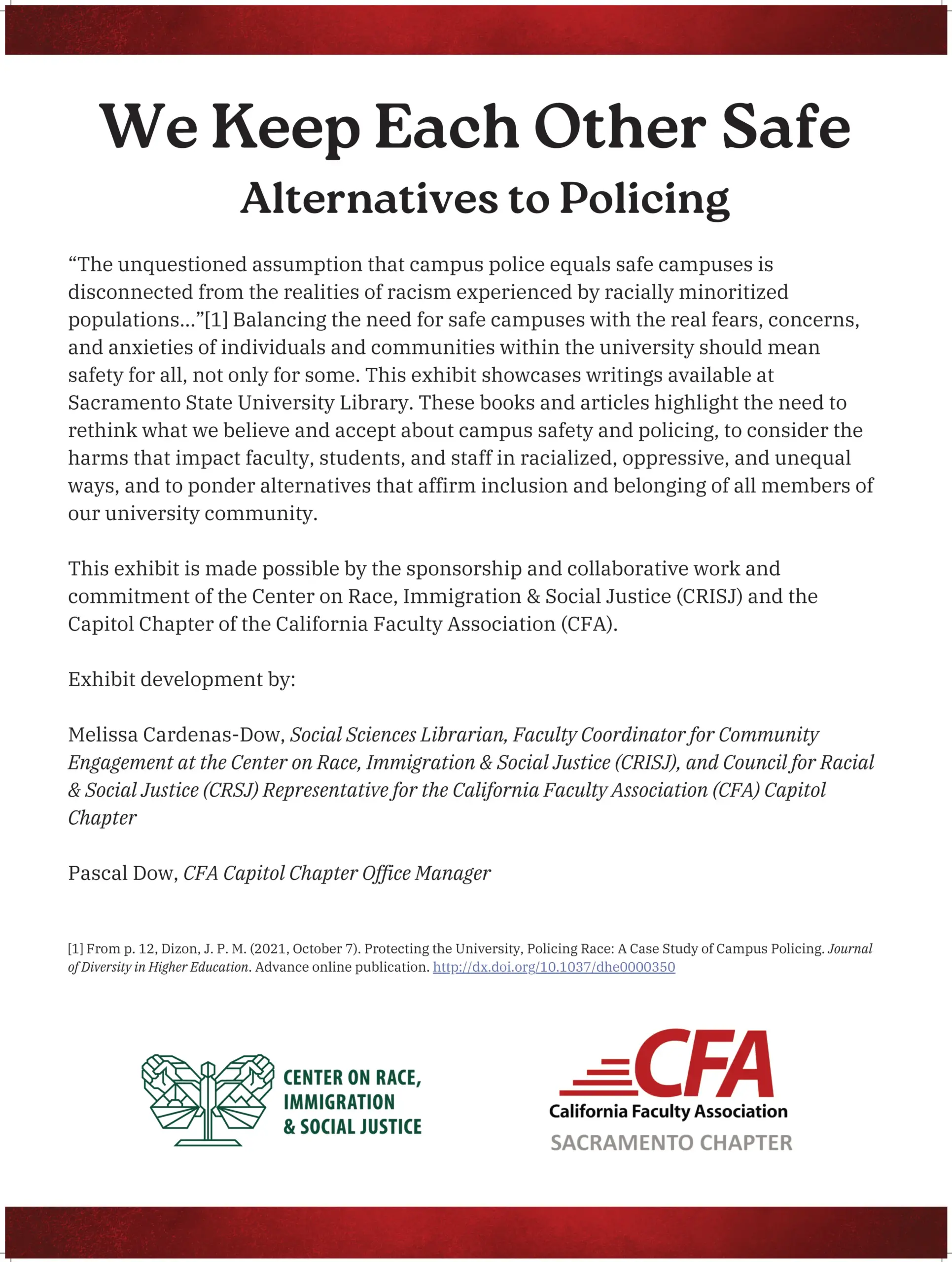CFA Members Advocate for Alternatives to Policing Through Library Displays
Several CSU librarians are using their roles collectively as guardians of knowledge to inform their campus communities of better ways to keep students, faculty, and staff healthy and safe through alternatives to policing.

In at least two CSU libraries – Sacramento State and CSU Dominguez Hills – resources about alternatives to policing sit inside a display case that students, scholars, and library patrons can check out through a QR code. And an exhibit statement titled “We Keep Each Other Safe” is front and center of the exhibit.
“One significant idea is for everyone in the university community to acknowledge that not everyone in our community feels safe and taken care of.”
– Melissa Cardenas-Dow
Melissa Cardenas-Dow, a social sciences librarian at Sacramento State and CFA Sacramento representative on CFA’s Council for Racial & Social Justice, had the idea for the Sacramento State display.
“Many scholars have written about the need for alternatives to campus policing,” said Cardenas-Dow. “Their writings and recommendations are represented in this display.”
The role of libraries to inform the public of public policy, health, and anti-racism and social justice issues is of utmost importance as anti-Black violence and overall violence rises.
“Balancing the need for safe campuses with the real fears, concerns, and anxieties of individuals and communities within the university should mean safety for all, not only for some,” reads the Sacramento State exhibit statement, written by Cardenas-Dow with support from CFA and her campus’ Center on Race, Immigration & Social Justice (CRISJ). “These books and articles highlight the need to rethink what we believe and accept about campus safety and policing, to consider the harms that impact faculty, students, and staff in racialized, oppressive, and unequal ways, and to ponder alternatives that affirm inclusion and belonging to all members of our university community.”
At CFA, our anti-racism and social justice work addresses structural racism, seeking to change policies and practices upholding policing which only reinforces anti-Blackness and racist, misogynistic, and sexualized forms of violence.



During our most recent full contract negotiations, CFA’s Bargaining Team repeatedly called for alternatives to police within our Health and Safety provision and demanded the CSU fund mechanisms for campus conflict resolutions rooted in restorative justice. Click here to read a full history of CFA’s efforts for alternatives to policing.
Last year, our members advocated for and got Assembly Bill 1997 signed into law, which requires an Alternatives to Policing Committee stakeholder workgroup at the CSU. Later this semester, CFA will re-open its contract on four provisions, including Article 37, our Health and Safety provision.
For Cardenas-Dow, being a librarian means continuing dialogue about these harmful policies on campus to better inform with faculty, staff, and students.
“One significant idea is for everyone in the university community to acknowledge that not everyone in our community feels safe and taken care of,” said Cardenas-Dow. “There are many things we can bolster and fund in order to address this.”
Cardenas-Dow and the CFA Librarian Committee will continue this work to expand our outreach to further engage in conversations and resources around alternatives to policing across our CSU libraries and system.
Join California Faculty Association
Join thousands of instructional faculty, librarians, counselors, and coaches to protect academic freedom, faculty rights, safe workplaces, higher education, student learning, and fight for racial and social justice.